Writer of science fiction for the young tries to impart their simultaneous sense of wonder and danger
The path to success for many novelists is paved with rejection slips, but not for Ellen Klages, a prolific author of science fiction and science-oriented historical fiction for young people.
“I was 45 and started at the top,” she said. While that might sound boastful, Klages has the receipts to back it up.
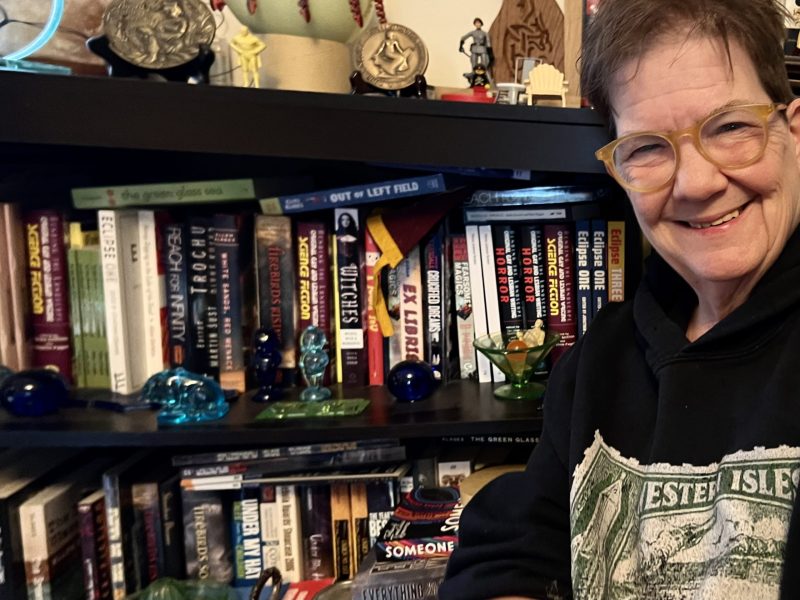
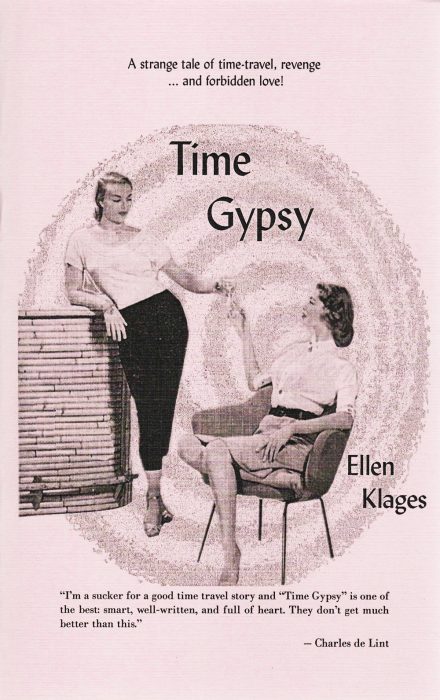
Her first short story, “Time Gypsy,” is a time travel and lesbian romance that was anthologized in 1998 and a finalist for the Hugo and Nebula awards, science fiction’s equivalent of the Oscars.
Within a few years, she published a novel and again earned Nebula and Hugo nominations along with several awards for children’s literature. Now 69 and living in Bernal Heights, her resume includes five published novels, eight non-fiction works, and two short story collections.
Before her writing career took off, Klages drifted through a series of low-paying jobs and an aimless course of study at two universities. She taught herself to be a professional proofreader and spent years working at the San Francisco Exploratorium, proofing and eventually writing articles for the science museum’s magazine.
One of her best-known novels is “Green Glass Sea,” which won the 2007 Scott O’Dell Award for Historical Fiction. It’s told from the perspective of a nine-year-old girl living in the top-secret community of Los Alamos, New Mexico, where the first atom bombs were developed during World War II.
Backstage to History
“For me, writing historical fiction is like having a time machine,” said Klages. “When I visit the past, I don’t want to go as a tourist, just getting the highlights. I want the backstage tour.”
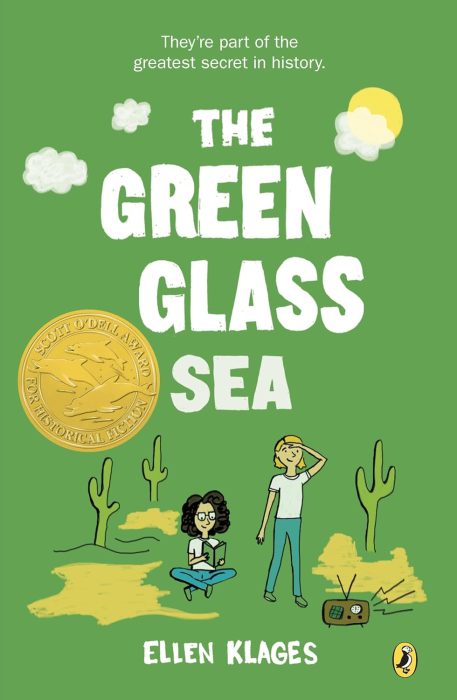
She got the “backstage tour” by way of a Cleveland, Ohio, bookstore in 2005. While browsing the shelves, she came across a reference to “Alamogordo,” the site of the Trinity atomic bomb test, a blast whose heat fused desert sand into green glass.
The reference intrigued her. She wanted to know more and began years of research that led to the creation of “Green Glass Sea.” Historical fiction is a labor-intensive “drill down” that requires the writer to discover all the details not just the basic facts, Klages said. “I love research,” she added.
Klages traveled to Los Alamos as she was working on the novel and noticed that some of the Manhattan Project’s buildings were still standing. “There I was with a 1942 map in hand, tracing the steps of scientists walking through the dust,” she said.
“I was figuring out where the light was coming from at certain times of the day, how it smelled. The days were filled with taking lots of pictures and lots of notes.”
Telling stories from the perspective of a child is a hallmark of Klages’ work.
“With children, there’s this amazing sense of wonder and at the same time everything in the world is dangerous; the stuff under the sink is poison; you can’t cross the street by yourself,” she said. “Those two things in juxtaposition — that sense of wonder and everything being dangerous – I find it really fascinating.”
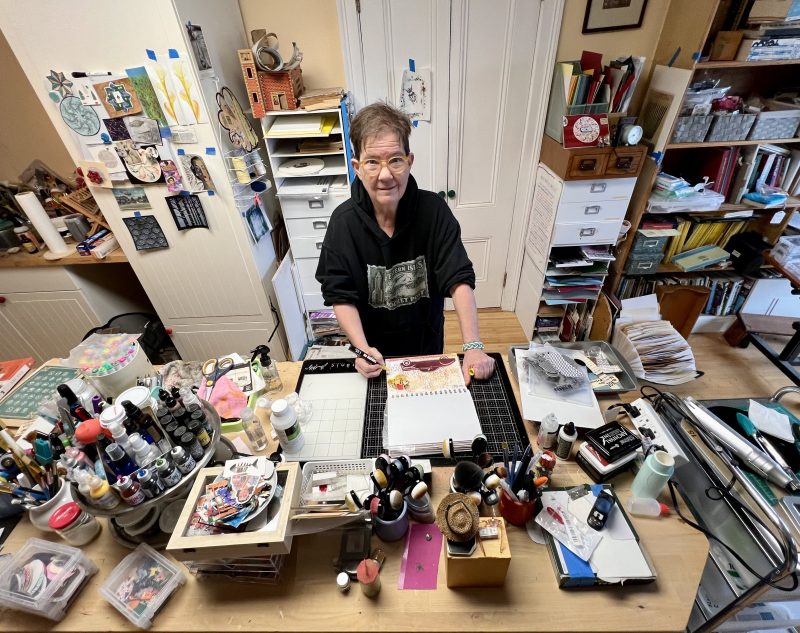
Although her writing career took off quickly once she embarked on it, Klages was in a quandary about her future until she was about 40. She didn’t know how she was going to make a living; what career, if any, she was ever going to pursue, she said.
Finding her path
While living in her hometown of Columbus, Ohio, she worked at a series of unsatisfying, low-paid jobs. She was a summer camp counselor and a shrink wrapper on an assembly line. As a Kelly Girl, she stuffed envelopes and put volumes of freight bills into numerical order; she couldn’t type. Her best gig, she said, was manager of a pinball arcade.
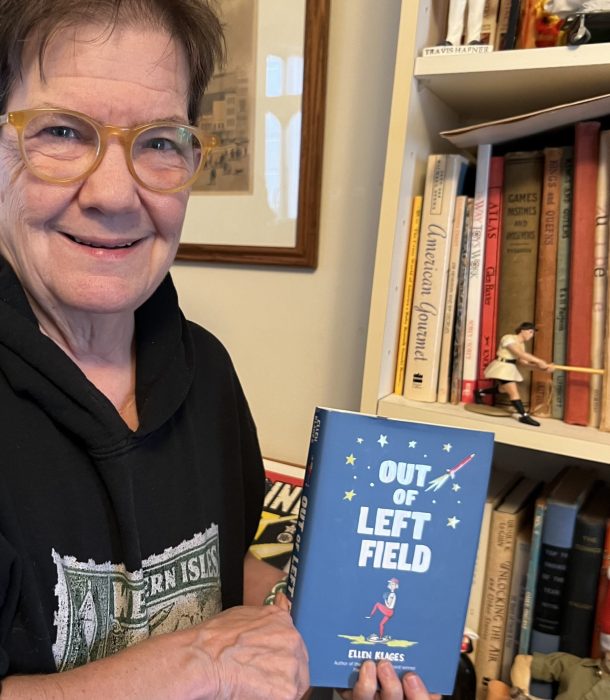
“I quit or got fired from all of these jobs,” she said.
She moved to the Bay Area in 1974 and enrolled at the University of California-Berkeley, where she never declared a major and only stayed for two semesters. “I only took courses that interested me, and then I left.”
She next enrolled at the University of Michigan. Still directionless, she earned a degree in philosophy, only because she happened to have enough credits in that subject to qualify for a bachelor’s degree.
“I looked under ‘p’ in the want ads and there were not any jobs for philosophers. The job market was limited and the closest I could come under “p” was proofreader,” she said. “I taught myself and found that I have an innate skill.”
Proofreading came naturally to a young woman brought up in a home where her parents and two sisters were always reading. The house was filled with books. She started working on a freelance basis for advertising agencies, cookbook publishers, and printing companies.
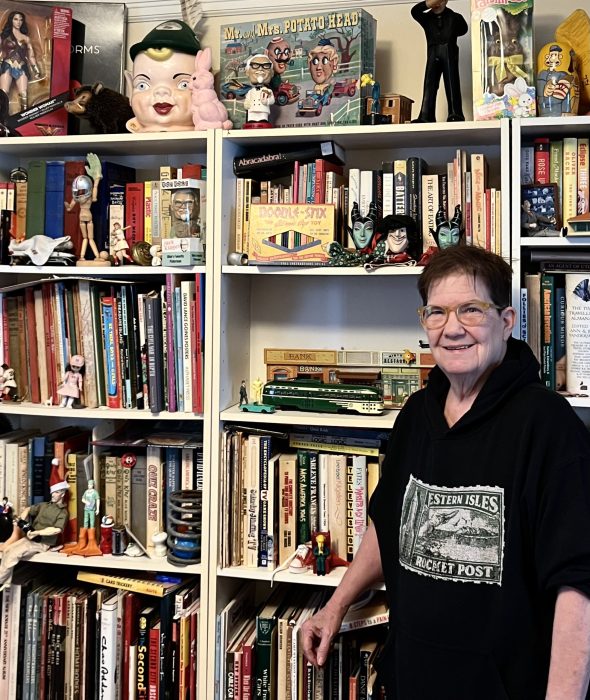
“And then came the most pivotal point in my life,” she said. It happened at a poker party.
‘Just write’
That’s where she met Pat Murphy, then the head of the editorial department at San Francisco’s Exploratorium. The two hit it off and Murphy eventually hired her. It was the start of stable employment.
During this time, she attended writers’ conferences but felt like “a fraud” because she had not yet written a novel. Just “write something!” a confidante urged her. It was the best advice she ever got, Klages said.
Nebraska public schools made her book required reading, she said. “Altogether I traveled to about 20 sites to talk about the book.”
She won the Nebula Award for Best Novelette with her short story “Basement Magic” in 2004. She then got a $10,000 advance for “The Green Glass Sea,” her first novel, which was published in 2006. Awards and invitations to speak to children and adults at bookstores, libraries, and community centers followed.
Collage and collecting
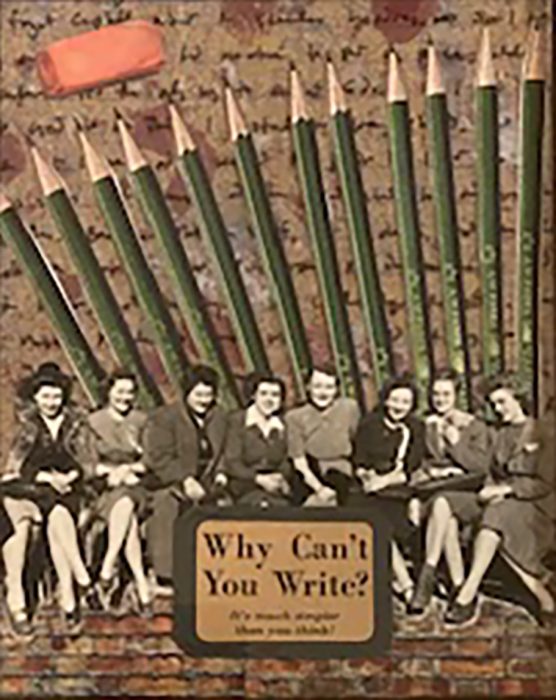
Klages spent the next eight years proofing brochures, newsletters, signs, exhibit graphics, and reports. She became a contributor to the Exploratorium’s quarterly magazine, “Exploring,” where she authored articles for 32 issues and three books, all science-oriented.
Her most recent book, “Passing Strange,” was a finalist for the 2017 Nebula Award for Best Novella. Klages is pleased with the slim volume’s reception but is hard to pin down when asked about its genre. “It’s historical fiction. It’s magical realism. It’s a fantasy. It’s noir. It’s pulp. It’s queer. It’s a romance. And it’s a love letter to San Francisco,” she wrote in an email.
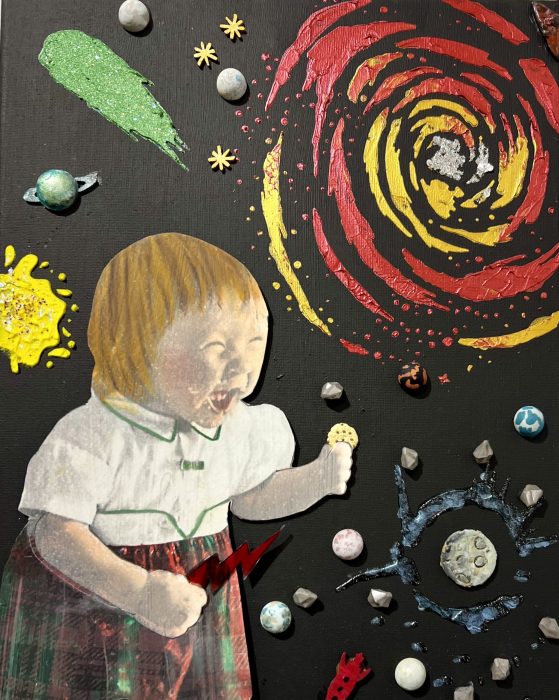
Covid put her writing career on hold – “All the places where I got my inspiration were shuttered. I was in a rabbit hole and couldn’t get out” – but she’s writing again. What the pandemic did do was plunge her into some new hobbies, such as collecting lead figurines and other toys, which she displays or sells on eBay.
She’s also taken up collage, with pieces like those pictured on the left reflecting her interest in science fiction, children, and writing. Some of them can be seen in The Four Chicken Gallery in her neighborhood. She’s sold more than a dozen. But writing is her love, and she is busy working on a new novel.


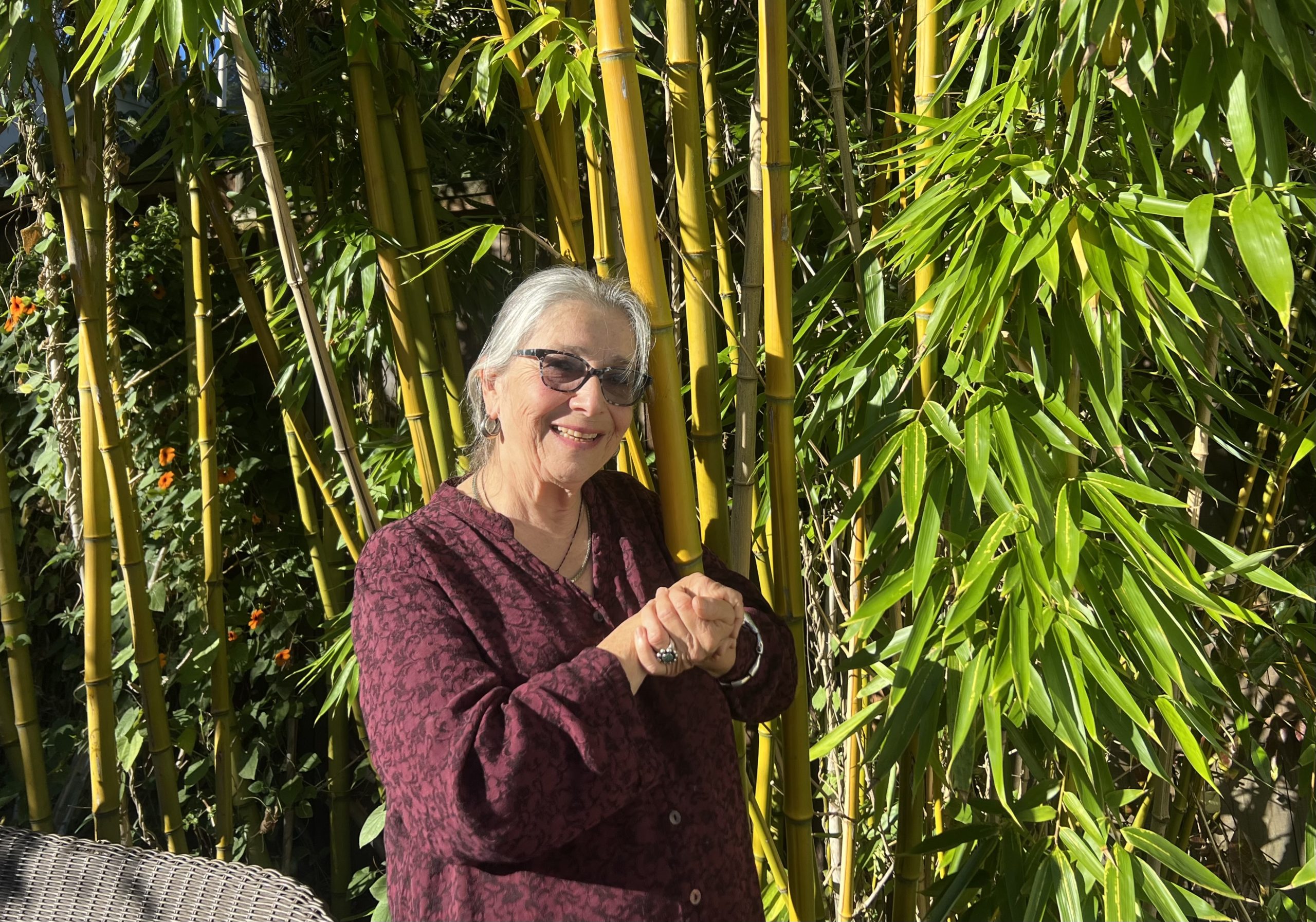
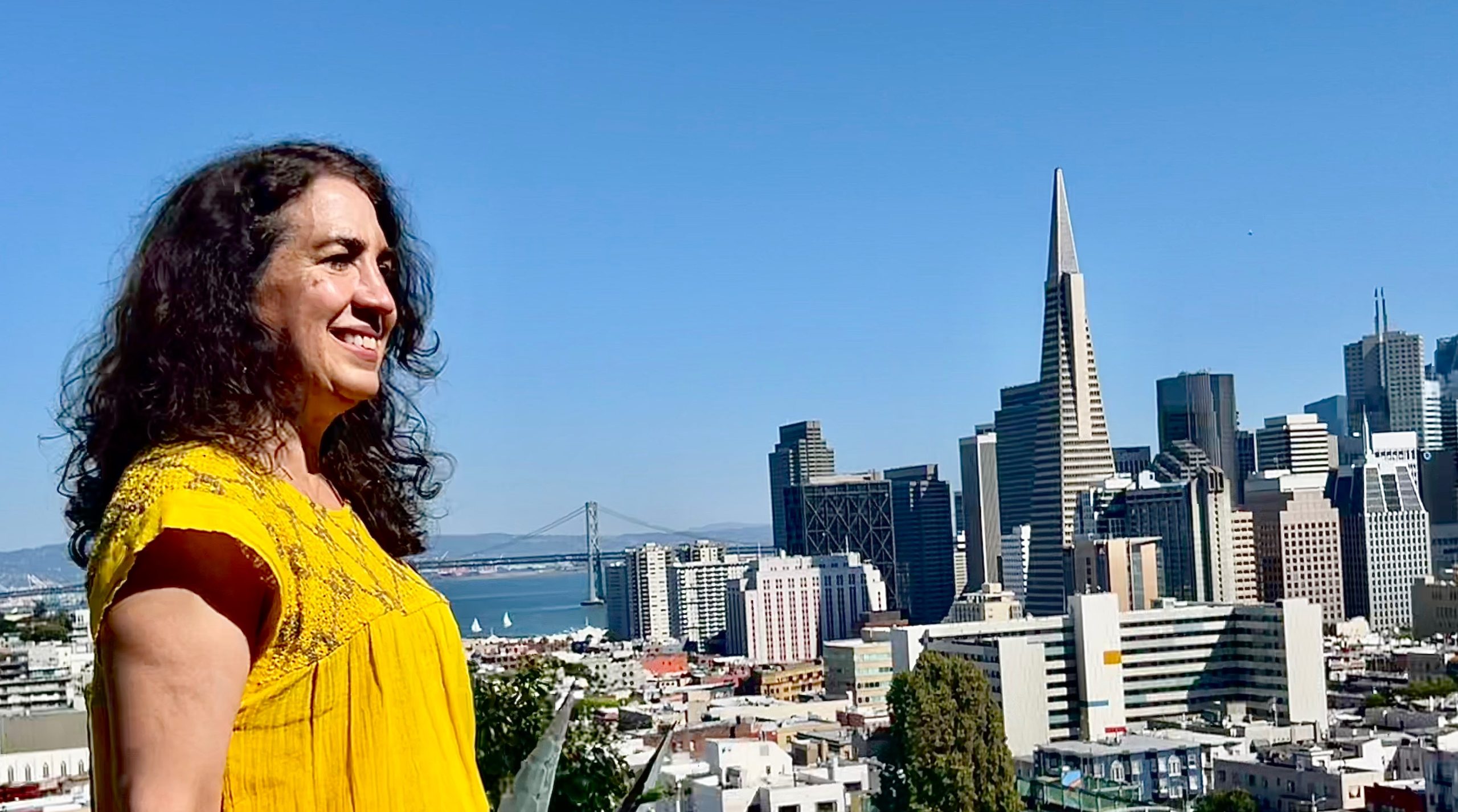
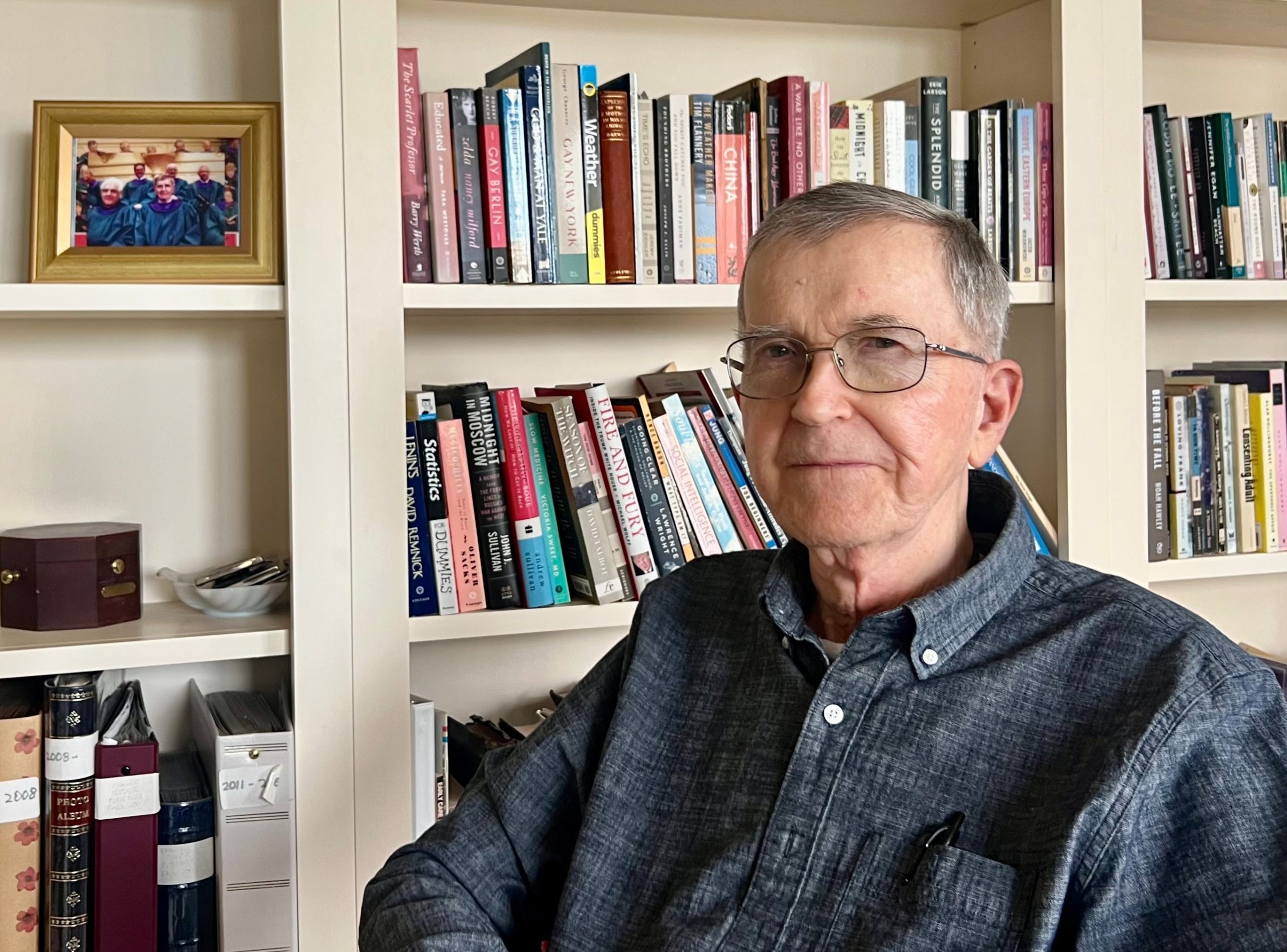

Jennie
Very interesting story that speaks to the experiences one might gather by traveling a somewhat seridipitous career path. The career counseling and job support resources I accessed as a young woman generally made me feel somewhat inadequate for the labor market. The most useful guidance I received was from a counselor who said, "You don't need to decide what you want to do for the rest of you life, just what you want to do next." Klages seems to have made astute choices, and seized opportunities that steered her toward a successful career as a writer. I look forward to reading "Green Glass Sea" and "Portable Childhoods."